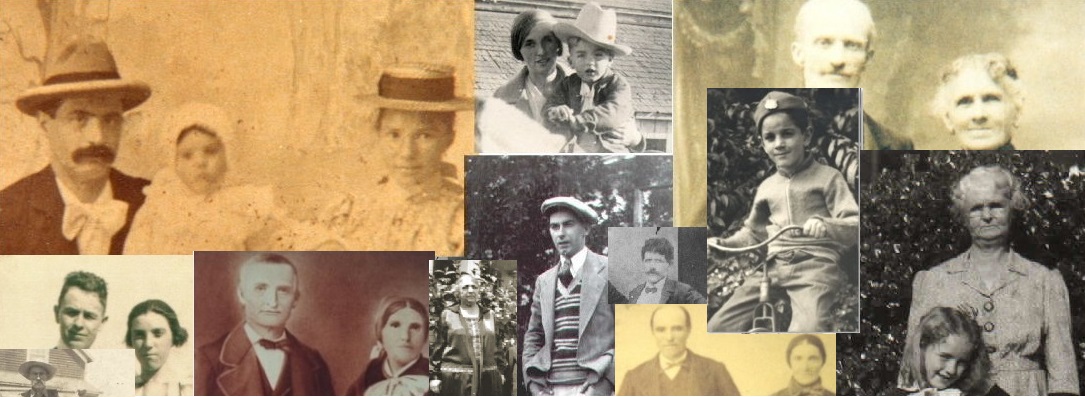I’ve written before about how my great grandfather, Theodoro, changed his surname from Pacheco to Smith. We were all told for generations that he thought there were too many Pacheco’s in Oakland, CA so he changed his surname to Smith. Ha Ha silly immigrant!
The truth was far more complicated. My great grandfather contracted leprosy while working on the Kilauea Sugar Plantation. In order to avoid deportation to Molokai, his family came up with a plan to smuggle Theodoro, his wife, and children from Hawaii. The plan worked, the family resettled in Oakland without a hitch, and they were the Smith’s forever more.
[Cause of death information from my great grandfather’s death certificate. He lived 7 years after being smuggled to California.]
About the same time, two of my great grandfather’s changed their surname to Algravia or it’s variants Algrava and Algarva. My theory was as they went to Oakland they were trying to deflect attention from my great grandfather by changing their surnames. It was a serious offense to bring leprosy into the mainland United States in the early 1900s and most likely would have lead to my great grandfather’s deportation back to Molokai or whatever was the equivalent in California. It made sense to me that the one brother, Manoel, used Algravia since he came over about the same time as my great grandfather. It fit nicely into my theory. The other brother, Francisco, came about 10 years later. Doesn’t fit as nicely into my theory.
This theory held up until a cousin gave me the insurance certificate her ancestor had filled out in 1900. That document listed my great grandfather’s brother, Antonio, with surname Algravio. Antonio’s family never used this surname. Antonio is mostly listed under Pacheco in records, though, the surname is on Antonio’s death certificate.
[Earliest mention of the Algravia surname or it’s variants came on this certificate dated 1900.]
Then, a descendant of Jose, my great grandfather’s other brother, told me she was told at funerals to sign her surname as Algrava–not Pacheco. No one in Jose’s family used the surname Algrava. Most of them stayed in Hawaii. Even those who came to California kept the Pacheco surname.
There have been more discrepancies over the years. But, recently I have worked in the California Marriage Records for Alameda County. The entry for my grandfather’s cousin, Georgina “Jean” (Cosma) Russell. caught my eye. Her mother was Marie (Pacheco) Cosma, my great grandfather’s sister. She is always noted in records as Marie Pacheco. But, here she was on Georgina’s marriage certificate as “Marie Algrava”. This marriage occurred in 1928. In addition to this record, various cousins were using the surnames Algrava or Algarva in marriages from 1925-1930 despite the fact that they were listed in other records as Pacheco.
So, where did Algravia and it’s variants come from? I have no clue! Other than the reference above from 1900, I can find no other early references of the surname on Kauai. I’ve gone through the records on the Azores for the village of Achada where my great grandfather’s mother was from and found no reference to the surname back to the 1700s. I went through his father’s village, Fenais da Vera Cruz, back to 1800 and have found no reference to the surname in relationship to the Pacheco family.
I’m inclined to think they contrived to mess with me a hundred years later. Okay, I have another theory that fits a little better than my genealogy conspiracy theory. I have yet to find a birth or baptismal record for Antonio, the brother mentioned above. I’ve gone through Achada and Fenais da Vera Cruz plus some neighboring villages without success. The other children were easy to find in Achada records where their parents lived. Could Antonio have been adopted? Could he be the child of a previous marriage? It would explain him adopting Algravio earlier than his siblings. It may be his real surname. It could be that he was born in the nearby village of Algarvia in Nordeste on Sao Miguel Island. The spelling doesn’t doesn’t concern me. It’s fairly obvious with all the variations I have found on the surname that no one was really surname how it should be spelled. I’m not even sure what the real spelling should be.
It may even be possible that Algravia was the surname of a Godfather, community elder, or mentor. Azoreans sometimes adopted surnames of those they wished to honor. Though, I saw this more in the 1700s and early 1800s than the 1860s when Antonio would have been born.
Then again, maybe it refers to nothing. Maybe it means that around 1900, Antonio met a man on the plantation from Algravia. He linked the name so much he added it to his name. Then, Theodoro became ill around 1905 and the family suspected leprosy. They began to lay down plans for his escape should it be necessary. Those plans involved establishing a different surname for all family members if necessary.
It is confounding to have the pieces but they won’t fit together! It’s even more confounding that more pieces appear but they only make it more difficult for the puzzle to be assembled. I suspect that beyond knowing the leprosy/smuggling story I may never know where the surname Algravia came from. I may luck out and find a record in the Azores, but I’m not holding my breath.








